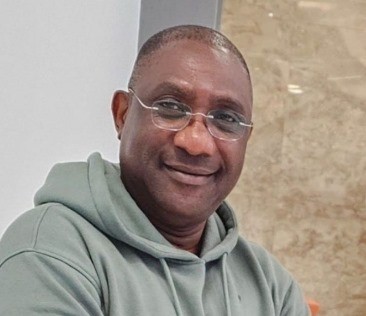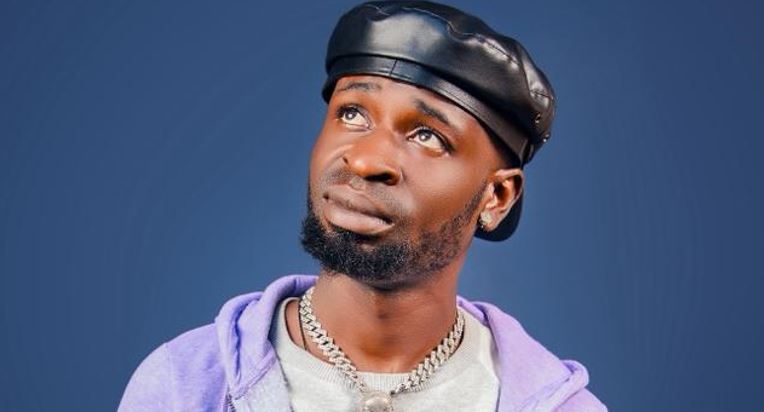The power of cultural ambassadors in building the digital future: Marketing the One Square mile project through culture and global icons
By Francis
Copyright thebftonline

By Sammy CRABBE
In our previous series on branding the One Square Mile Project, we established that for Ghana’s flagship digital economy zone to succeed, it must stand out in the global marketplace as more than just another special economic area.
We argued that branding is about identity and promise – positioning the One Square Mile as the beating heart of Ghana’s digital transformation, not simply a cluster of infrastructure projects.
But branding is only the first half of the journey. Once the brand is defined, the next challenge is marketing that brand to the world – translating the promise into awareness, trust, and action. If branding answers the question “Who are we?”, marketing answers “How do we tell the world – and how do we persuade them to join us?” That is the focus of this new series.
Positioning the One Square Mile beyond infrastructure
Every marketing strategy begins with positioning: the place a product or project occupies in the minds of its audience relative to alternatives.
If the One Square Mile is positioned merely as an infrastructure project, it risks blending into a crowded field of African “smart city” initiatives, many of which remain incomplete or underperforming.
Instead, it must be positioned as a cultural and digital experience – a space where technology meets creativity, and where global culture converges with African innovation.
This is not unprecedented. South Korea repositioned itself as a technology hub through cultural exports like K-pop and K-drama, which captured global imagination long before its hardware industry became dominant. Jamaica’s reggae music turned a small island into a global brand recognized far beyond its GDP.
These cases illustrate a key marketing truth: when infrastructure is invisible, culture makes the brand visible. Ghana must take a similar path, using cultural energy to position the One Square Mile as Africa’s digital heartbeat.
Branding through cultural ambassadors
A brand is more than a logo; it is a promise and a story. For the One Square Mile, the promise is twofold: that Ghana is technologically prepared and that it is culturally magnetic. This is where cultural ambassadors – musicians, actors, and creatives with both Ghanaian roots and international influence – come in.
Imagine a global campaign featuring Stormzy, proudly acknowledging Ghana as both his ancestral home and a hub of Africa’s digital future. Or Fuse ODG, whose This Is New Africa (TINA) movement already reframed the continent as modern, confident, and globally connected. Add to that Idris Elba, whose screen presence carries credibility across Hollywood and beyond. These are not random celebrity endorsements; they are influencer marketing strategies rooted in authenticity.
Marketing research shows that audiences place greater trust in messages delivered by opinion leaders they admire and identify with. Diaspora stars like Stormzy or Fuse ODG are uniquely positioned to act as brand custodians for the One Square Mile. Their cultural credibility allows them to amplify Ghana’s digital vision far more effectively than government press releases or investment brochures ever could.
Storytelling as a differentiation strategy
Marketing thrives on storytelling. The One Square Mile’s story is powerful: a nation with deep cultural pride and political stability is building the future of Africa’s digital economy. Yet stories require narrators who can make them resonate. Cultural ambassadors can give the One Square Mile a human voice.
Consider a narrative campaign: a Ghanaian entrepreneur builds a fintech solution within the One Square Mile. Stormzy shares the story in London, Fuse ODG amplifies it in the US, and Idris Elba ties it into diaspora investment. Suddenly, the story is not just about infrastructure but about people, dreams, and global resonance.
This is the essence of differentiation. Many African nations offer tax breaks and market access, but few can tell a story that merges culture with commerce. By leading with cultural storytelling, Ghana can position the One Square Mile not just as a business opportunity but as a cultural movement with economic weight.
Why this strategy over others?
Some will argue that Ghana should emphasize policy-driven marketing – tax incentives, AfCFTA access, and regulatory reforms. While vital, these are rational appeals that every competing market can replicate. The true marketing advantage lies in emotional branding, which creates loyalty and resonance that numbers alone cannot.
Celebrity-driven cultural marketing taps into psychological differentiation. It is harder to copy the pride of a Stormzy campaign or the authenticity of Rita Marley endorsing Ghana than it is to copy a tax code. By foregrounding cultural ambassadors, Ghana builds an emotional moat that shields the One Square Mile from competitors.
In marketing theory, this is the difference between transactional campaigns (focused on immediate incentives) and relational campaigns (focused on long-term emotional bonds). Ghana’s best bet is the relational path, which positions the One Square Mile not only as a place to invest but as a story to belong to.
Linking forward – From ambassadors to target markets
This article has made the strategic case for using cultural ambassadors as the foundation of the One Square Mile’s marketing. But these ambassadors are not a single group; they fall into distinct market segments. There are diaspora stars with Ghanaian ancestry, global icons who have chosen Ghana as a second home, and Ghana’s own local stars whose influence stretches across Africa.
In the next article, we will explore the first of these segments: diaspora stars like Stormzy, Fuse ODG, and Idris Elba. They are not just entertainers but brand multipliers who can bridge Ghana and the global marketplace, transforming the One Square Mile into a truly international story.
>>>the writer is a PhD researcher specializing in blockchains and decentralized finance at the University of Bradford. He holds an MBA in International Marketing and a post-graduate certificate is research from the International University of Monaco. Sammy was the first president of the Ghana Business Outsourcing Association and developed Africa’s first data entry operation and Ghana’s first medical transcription company. He can be reached via [email protected]



